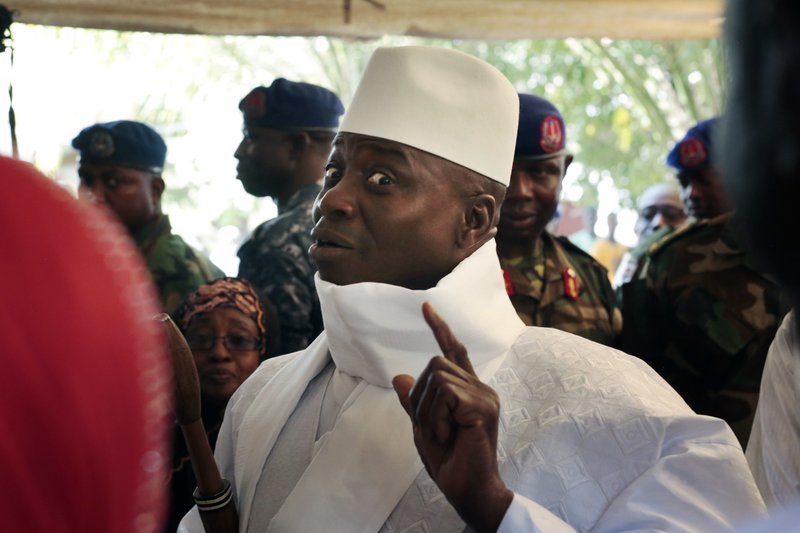Victims of the exiled former Gambia dictator Yahya Jammeh applauded a statement by the country’s minister of justice that Jammeh would face “immediate arrest and charges of the most serious kind” if he came back.
Speaking to the annual meeting of Gambian judges and lawyers in Banjul on January 19, minister Abubacarr Tambadou, referring to Jammeh’s bid to return to the Gambia, said “Make no mistake about it, barring any findings or recommendations of the TRRC to the contrary, if former President Yahya Jammeh, ever comes back to this country, he will face immediate arrest and charges of the most serious kind, and no amount of irresponsible idle talk or political brinkmanship will prevent this from happening. He will be subjected to an accountability process like any ordinary accused person in this country.”
The minister’s remarks follow demonstrations by Jammeh’s political party, the Alliance for Patriotic Reorientation and Construction (APRC), calling for his return to The Gambia from Equatorial Guinea, and remarks by Jammeh himself in a leaked telephone recording asking that he be allowed to return.
“The minister made clear that Yahya Jammeh is not above the law,” said Fatoumatta Sandeng, daughter of Gambian opposition leader Solo Sandeng whose murder in custody in 2016 galvanized opposition to Jammeh and who is now spokesperson for the Campaign to Bring Yahya Jammeh and his Accomplices to Justice. “If Jammeh comes back it should only be in handcuffs.”
A Gambian Truth, Reconciliation, and Reparations Commission (TRRC) has already heard public testimony from victims as well as confessed perpetrators implicating Jammeh in numerous grave crimes during his 22 years in office. These include the rape and sexual assault of women, and ordering or instigating the killing and torture of political opponents, the murder of some 56 West African migrants and “witch hunts” in which hundreds of women were arbitrarily detained. Testimony is still expected regarding the “presidential treatment program,” in which HIV-positive Gambians were coerced to give up their medicines and put themselves in Jammeh’s care, sometimes with fatal consequences.
The Gambia Center for Victims of Human Rights Violations has called a march for January 25 to protest against Jammeh’s return. “The families of those killed and tortured under Yahya Jammeh will not abide by Jammeh returning a free man,” said Sheriff Kijera, the Center’s chairperson.
The former president and his party have made repeated references to an “agreement” with the United Nations, the African Union (AU) and the Economic Community of West African States (ECOWAS) that purportedly gave him assurances that if he left office and the country following his December 2016 election defeat, he would not be prosecuted.
The victims and their supporters noted, however, that the unsigned January 2017 document contains no assurance against prosecution, nor could it, as international law bars amnesties for international crimes, including torture and crimes against humanity. The government of The Gambia, which was never consulted on the 2017 document, has repeatedly rejected it, as has neighboring Senegal.
On January 18, nineteen Gambian, Ghanaian and international NGOs wrote to the United Nations, the AU and ECOWAS calling on them to support the Gambian government’s position and “reject any request to enforce an alleged immunity guarantee.”
“Jammeh allegedly ordered the killing of not only Gambians but some 44 Ghanaians, as well as citizens of Cote d’Ivoire, Nigeria, Senegal, and Togo,” said William Nyarko, Executive Director of the Africa Center for International Law and Accountability, who coordinates the “Jammeh2JusticeGhana” campaign. “There can be no immunity for grave crimes under international law like crimes against humanity including killings, torture and rape.”




